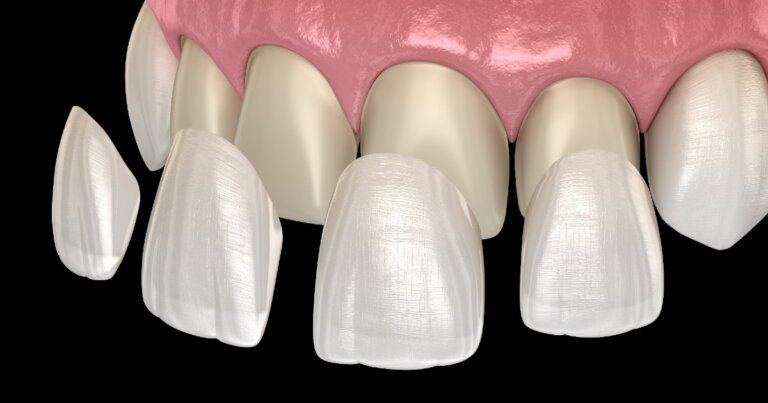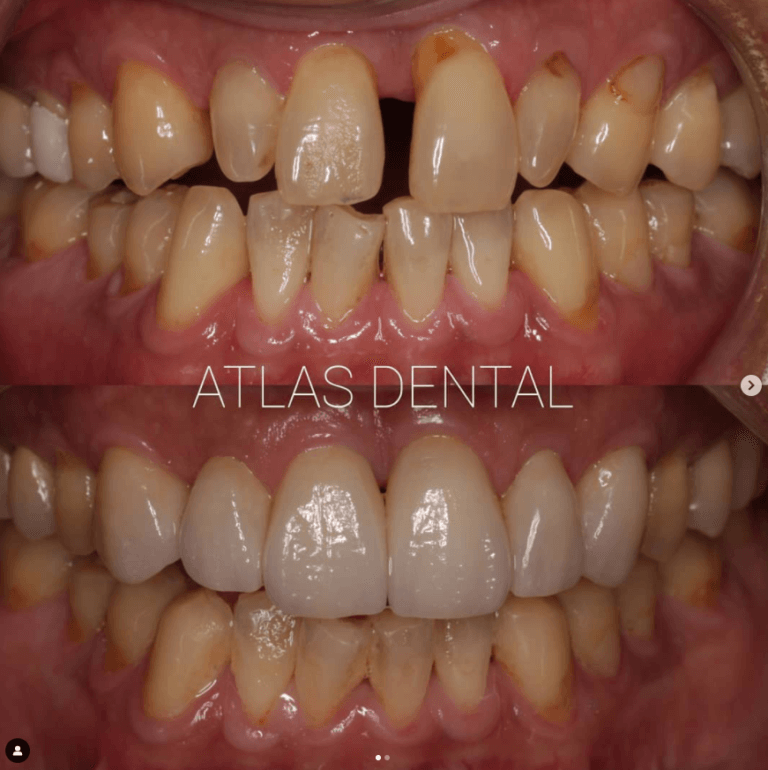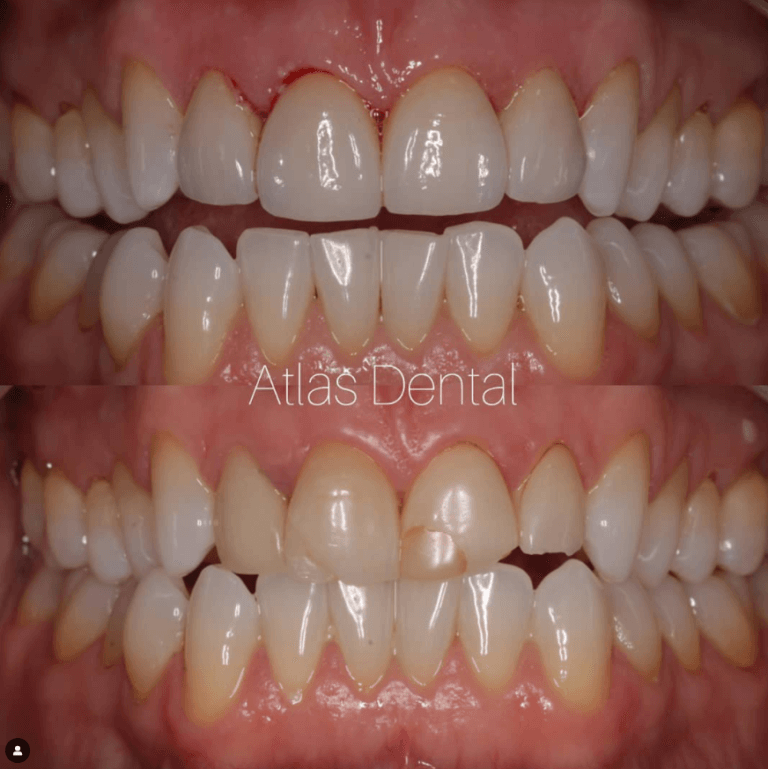Zirconia Veneers

What Are Zirconia Veneers?
Zirconia veneers are a type of dental veneer made from zirconium dioxide, a highly durable ceramic material. Known for its strength, biocompatibility, and natural aesthetics, zirconia is commonly used in dental restorations like crowns, bridges, and now veneers. These veneers are an excellent solution for addressing cosmetic concerns, offering a minimally invasive way to enhance the appearance, color, shape, and size of your teeth.
Whether you’re looking to correct a single tooth or transform your entire smile, zirconia veneers can help you achieve a confident and radiant appearance. Before deciding on whether Zirconia Veneers are right for you, there are some things you should know:
- Who Needs Zirconia Veneers?
- Benefits Of Zirconia Veneers
- Alternative Treatments To Zirconia Veneers
- How Much Does Zirconia Veneers Cost?
- Steps In The Zirconia Veneers Procedure
- Frequently Asked Questions About Zirconia Veneers
If you have any further questions about Zirconia Veneers or other dental services offered at Atlas Dental, please contact us.

Free phone consultation
Have questions about porcelain veneers? Schedule a free phone consultation with our cosmetic smile dentist in Toronto.

Book In person Consultation
If you are ready to get started with your dental veneer smile treatment, book an in-person appointment now

Emergency Veneer Repair
Chipped a porcelain veneer or has a porcelain veneer fallen off? Schedule an emergency veneer repair online.
Who Needs Zirconia Veneers?
Zirconia veneers are ideal for patients looking to address cosmetic dental concerns, such as:
- Discolored Teeth: Ideal for teeth stained due to aging, medications, or lifestyle habits like smoking or coffee consumption.
- Chipped or Worn Teeth: Restore the look of teeth damaged by cracks, chips, or wear over time.
- Irregularly Shaped or Misaligned Teeth: Provide a straighter, more uniform appearance without the need for orthodontics.
- Gaps or Spaces between Teeth: Close minor gaps for a seamless, even smile.
- Dull or Uneven Teeth:Enhance surface texture for a polished and vibrant appearance.
It’s important to note that Zirconia Veneers are a cosmetic dental solution and may not be suitable for everyone. Your dentist will evaluate your oral health, dental history, and specific concerns to determine whether veneers are the right option for you. If you have further questions about Zirconia Veneers, please contact us.
Benefits Of Zirconia Veneers
Zirconia veneers offer several benefits, making them a preferred choice for smile makeovers:
- Strength and Durability: Highly resistant to chipping, cracking, and daily wear.
- Natural Appearance: Custom-designed to match the color, size, and shape of your natural teeth.
- Minimally Invasive: Requires minimal enamel removal compared to crowns, preserving more of your natural tooth structure.
- Stain Resistance: Maintains brilliance even with regular exposure to staining foods and beverages.
- Longevity: With proper care, zirconia veneers can last 10–15 years or more.
- Enhanced Confidence: Transforming your smile can boost self-esteem in social and professional settings.
- Holistic and Biocompatible: Zirconia veneers offer a metal-free, biologically-safe dental solution that promotes overall oral health and eliminates risk of metal allergies or sensitivities.
It’s important to note that Zirconia Veneers, like any dental procedure, also have considerations and potential limitations. It’s crucial to consult with a qualified dentist to understand the specific advantages and potential risks or limitations associated with your unique dental situation. If you have further questions about the benefit of Zirconia Veneers, please contact us.

Alternative Treatments To Zirconia Veneers
If zirconia veneers aren’t the right fit, consider these alternatives:
- Composite Veneers: Crafted from composite resin, these veneers are directly applied and shaped on the teeth by the dentist during the same appointment. While they may be more affordable than porcelain or ceramic options, composite veneers offer satisfactory aesthetics and can be a suitable choice for those seeking a cost-effective solution.
- Feldspathic Porcelain Veneers: Feldspathic porcelain veneers are made from traditional dental porcelain. They are crafted by highly skilled dental technicians who layer and shape the porcelain to create natural-looking veneers. Feldspathic veneers are known for their excellent aesthetics, as they can mimic the translucency and shine of natural tooth enamel. However, they may be more prone to chipping or fracturing compared to other types of veneers.
- Lithium Disilicate Veneers: Lithium disilicate veneers are made from a glass-ceramic material known for its strength and aesthetics. They offer a balance between strength and natural-looking appearance. Lithium disilicate veneers are highly resistant to chipping and can withstand the forces of normal biting and chewing. They provide a lifelike translucency and can be an excellent choice for achieving beautiful and durable veneers.
- Teeth Whitening: If your primary concern is tooth discoloration or stains, professional teeth whitening may be a suitable alternative to veneers. This non-invasive procedure involves the application of bleaching agents to lighten the color of your teeth. While teeth whitening can be highly effective for mild to moderate stains, it may not address other dental issues like chipped teeth or uneven surfaces.
- Dental Crowns: Dental crowns, also known as caps, are tooth-shaped restorations that completely cover damaged or decayed teeth. They are an option for more severe dental issues, such as extensively damaged or weakened teeth. Dental crowns can improve the appearance, strength, and functionality of the affected teeth. However, like dental veneers, dental crowns typically require enamel removal and multiple dental visits.
It is essential for patients to consult with a qualified and experienced cosmetic dentist to determine the most suitable option based on their specific dental needs and desired outcome. If you have further questions about Zirconia Veneers, please contact us.
Cost of Dental Veneers
The cost for a porcelain veneer is $1349-1449 depending on the type of material. The cost of a direct composite veneer (dental bonding) is $500. The codes relevant to veneers in the Ontario Dental Association’s Suggested Fee Guide appear as follows:
Porcelain Veneers, Laboratory Processed
- 27602 – Veneers, Porcelain/Ceramic/Polymer Glass, Bonded: $1099 + Dental Lab Fee ($250-350)
Composite Veneers
- 23122 – Tooth Coloured Veneer Application – Non Prefabricated Direct Build-up – Bonded: $525
Dental veneers are considered a cosmetic service under all dental insurance plans and are usually not covered by your dental insurance. This means you are entirely responsible for the out of pocket costs of this type of smile makeover treatment. Please consult with your dentist about fees before going ahead with treatment.
For patients without dental insurance, Atlas Dental is pleased to offer dental financing through iFinance Dentalcard. Affordable payment plans start at 7.95% for terms of 6 months to 6 years. To learn more about Dentalcard dental treatment financing, follow this link.
Steps In The Zirconia Veneers Procedure
The process of getting Zirconia veneers typically involves several appointments:
- Consultation: Your dentist assesses your smile goals, takes X-rays, and creates a treatment plan.
- Treatment Planning: You’ll discuss the number of veneers needed, material choice, and desired shade.
- Tooth Preparation: A thin layer of enamel is removed from your teeth, creating space for the veneers.
- Impression Taking: Impressions are taken and sent to a lab, where your custom veneers are crafted.
- Veneer Placement: Your dentist will bond the veneers to your teeth, ensuring a perfect fit and alignment.
- Follow-up: A post-appointment check ensures the veneers are functioning well and looking great.
Your dentist will provide specific care instructions to help you maintain your new smile. If you have further questions about the Dental Veneer procedure, please contact us.

Frequently Asked Questions About Zirconia Veneers
- How long do zirconia veneers last?
With proper care, zirconia veneers can last 10–15 years or longer.
- Are zirconia veneers stain-resistant?
Yes, zirconia veneers are highly resistant to stains, maintaining their brightness over time.
- Is the procedure painful?
The procedure is minimally invasive and performed under local anesthesia, ensuring comfort.
- Can zirconia veneers fix misaligned teeth?
Zirconia veneers can correct minor alignment issues, but severe cases may require orthodontics.
At Atlas Dental, we specialize in providing high-quality zirconia dental veneers tailored to your needs. Contact us to discuss your options. Our experienced team is here to help you achieve a confident and functional smile.

